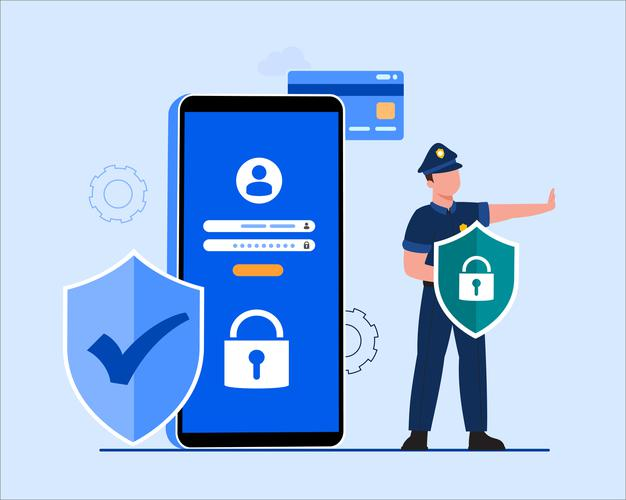“Privacy is not something that I’m merely entitled to; it’s an absolute prerequisite” – Marlon Brando.
Your customers share the same feeling! So, if you thought that privacy was a headache only for companies like Amazon, eBay, or British Airways, you need to think again.
Why?
Regardless of your Online businesses, losing client data like credit card information, financial records, residential information, or even medical records can result in disastrous consequences. In 2021, the personal data of 533 million Facebook users was leaked online. If a company like Facebook is susceptible to data privacy issues, your business may be on the hit list of cybercriminals. So, never let your guard down when it comes to protecting your customer’s data.

The ever-changing digital landscape has further intensified the perplexities of privacy issues. Today, online businesses that give importance to data privacy are the ones that can save thousands of dollars by preventing costly lawsuits related to non-compliance.
Are you ready to limit your liability and prevent hefty lawsuits?
Let’s get started!
Top 6 Privacy Considerations for Your Online Businesses
Contrary to popular belief, privacy consideration is no longer a financial liability because it saves money and helps build a reputation when done right. Digital customers prefer shopping from brands that can safeguard their data. To ensure data safety and build trust with customers, we’ve listed six privacy considerations every online business should follow.
1. Ensure compliance with privacy laws
You’re legally if not morally, obligated to protect your customer’s data. But, protecting your customer’s data is much more than securing the network connection and creating privacy policies.
It’s more about adhering to data privacy laws like California Privacy Rights Act or CPRA. According to this act, companies should give customers an option for sharing their personal information. It also limits how your company will use, collect, and retain customer data.

With regulatory changes being the top compliance challenge in 2020, you need to stay up-to-date with the latest rules and regulations to avoid hefty lawsuits. Ensuring compliance with these regulations ensures that a company is mindful of its customer’s data and leaves no stone unturned in protecting it.
How to ensure compliance
- Understand data privacy laws that apply to your company
- Identify and adequately document customer data you hold
- Review the current compliance best practices
- Verify your consent procedure
- Establish a process for reporting data breaches
- Raise awareness and collect only data that you require
- Monitor transactions with SEON – transaction monitoring software
Pro-tip: Ensure compliance with all data privacy laws that apply to your business based on your customers and business location.
2. Conduct a privacy audit
As companies are dealing with an avalanche of data privacy rules, there is a growing need for companies to understand what data they’re collecting, how they’re doing, and ways they’re protecting the data. A lack of attention to this entire data collection can spark a crisis.
This is where a data privacy audit comes in handy.

Conducting such audits provide incredible insights into everything from unknown vulnerabilities to data flows. Once you have information about where the customer data lives, it’s easier to fulfill all requirements related to data privacy.
Benefits of a data privacy audit
- Identify potential data protection risk
- Help you mitigate the risk before it becomes a legal problem
- Reveals the gap between actual and required privacy management
- Provides ways to improve processes to increase data security
Pro-tip: Remember that data privacy is not a one-time affair because, as a business, you constantly keep adding data. So, try conducting a privacy audit at least every quarter.
3. Create a privacy policy
As an online business, you are bound to collect tons of customer data, including personal information. You may be collecting credit card details, phone numbers, bank details, and any other information that is on the radar of cybercriminals.
Therefore, it becomes extremely important to create a privacy policy like the one from Let’s Save Some Money.
Today, with increasing incidents of data breaches, a privacy policy is no longer a minuscule link on a website.
It isn’t enough to copy and paste a boilerplate privacy policy from your competitors or other websites. With one-in-five customers often or always reading a company’s privacy policy, it could be a game-changer for protecting customers’ data.
For regulators, it’s the binding agreement between you and your customers.
The privacy policy can include details like how your business collects, processes, stores, shares, and protects your data. It also clearly outlines how a customer can contact your company if they have issues with their data sharing. Your privacy policy should state the third parties that may have access to the personal data information.
Benefits of the privacy policy
- Protects your business from hefty penalties and lawsuits
- Showcases that your website is safe
- Limits your liability
- Sets different rules a customer has to follow while transacting with your business
- Help you adhere to laws and regulations
- Help your business showcase transparency
Pro-tip: Apart from ensuring website compliance, a privacy policy can help you limit liability, terminate certain accounts, ensure compliance with international laws, and set governing laws for using your website.
4. Enhance your digital security
Online businesses are collecting a massive amount of data to personalize the customer’s experience. Primarily, companies rely heavily on cloud software to store their data. This increases the need to invest in different digital security measures.
How to ensure digital security
- Delete customer information when you no longer need it for any transaction
- Hire an IT and network specialist to ensure your website, network, and databases are secure. You can include multiple layers of security to make it impossible for cybercriminals to break your security system
- Always use an SSL certificate for online transactions
- Encrypt customer’s sensitive and personal data
- Request your customers to keep secure and strong account passwords
- Use dedicated servers to host your data

Pro-tip: Having an ‘HTTPS’ in your website’s link can build a customer’s confidence and showcase your business as legitimate.
5. Focus on PCI DSS
As an online business, you’re likely to make money transactions with your customers. For a customer to trust your business with their credit or debit card information, you should provide a safe and secure gateway for making payments.
That’s why you need to ensure compliance with Payment Card Industry Data Security Standard. PCI DSS is a set of technical standards that ensures every online business that stores, transmits, and processes customer credit card information should provide a secure transacting environment. With 24% of Americans agreeing that their data is very vulnerable to attacks, compliance with the above standard could help change the customer’s perception of their data’s safety.
Benefits of PCI DSS
- Minimizes risk of cardholder’s data
- Industry regulatory requirements for doing business
- Reduces instances of identity thefts
- Minimizes fraudulent purchases
- Implements strong access control measures
- Builds and maintains a secure network
- Gives your customers another reason to trust your business
Pro-tip: PCI DSS compliance is necessary when you’re planning to secure your payment gateway.
6. Consult an ethical hacker
Apart from online security, you need to protect physical assets and systems. Vulnerability in these systems can easily go undetected, leaving your business on the cusp of security breaches. Exposed subdomains and open gits are a few paths through which a cybercriminal can seek entry into your business.
That’s why you need to conduct periodic asset monitoring and consult an ethical hacker to detect and overcome these vulnerabilities.
An ethical hacker will penetrate your website’s network to look for suspicious activities like unauthorized changes in customers’ passwords, unauthorized connections, or any other account-related malicious activity. These hackers replicate the action of cybercriminals to find out the weakness of your assets and systems.

If your website used subdomains that are no longer functional, they might point to other third-party services. This could be a potential place for entering your network and creating havoc with customer data. Asset monitoring can put a full stop to these activities once and for all.
Pro-tip: To ensure complete safety from security threats, conduct asset monitoring bi-annually or annually.
Joining the data privacy bandwagon
The digital age is both a boon and a curse for online businesses. While it connects you to potential customers, it also introduces you to cyber criminals. Online businesses that give equal importance to marketing and data privacy are the ones that don’t fall into the trap of digital Darwinism.
With 97% of companies reporting benefits like increased competitive advantage and investor appeal from investing in privacy, you cannot afford to overlook data privacy and security benefits.
Always remember that there is no place for sentiments in the dark web because hackers look for the tiniest possible security gap to steal your customer’s information. Use these six privacy considerations to build an online business with which a customer can trust their data.
While these tips may help solve your immediate problem, you need to reiterate the process to stay sustainable and compliant.
Always remember that the game plan is: More privacy = Fewer risks
Which privacy considerations did you use? How did it help you?
Share your thoughts in the comments section!
